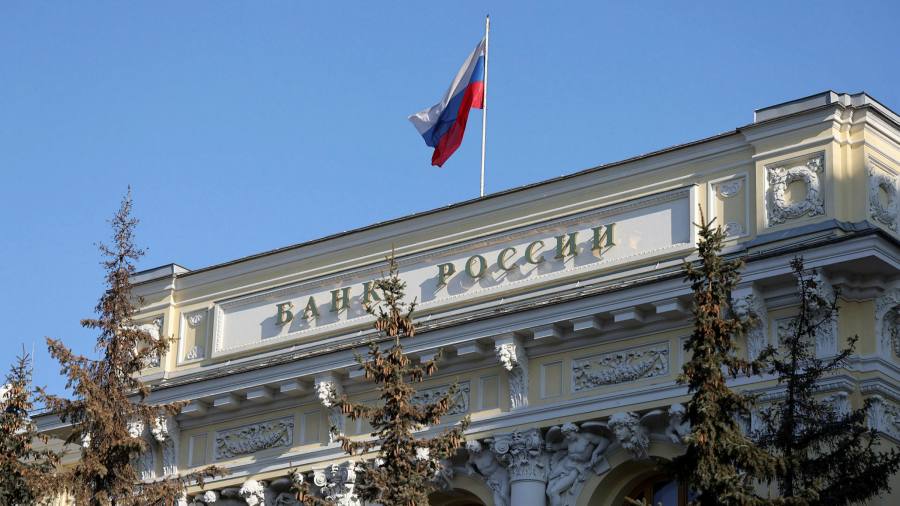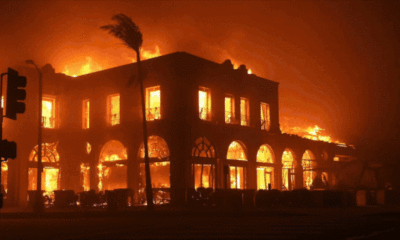The British government sought to quell tumult in UK bond markets on Thursday by vowing to stick to its fiscal rules even as borrowing costs hit their highest level since the financial crisis.
Darren Jones, number two at the UK Treasury, appeared in parliament to answer urgent questions on the markets turmoil after the 10-year gilt yield rose to 4.93 per cent, its highest since 2008, and the pound dropped as much as 1 per cent against the dollar to its lowest for more than a year.
“UK gilt markets continue to function in an orderly way,” Jones told MPs. “There should be no doubt of the government’s commitment to economic stability and sound public finances. This is why meeting the fiscal rules is non-negotiable.”
Jones’ appearance came after Sir Lindsay Hoyle, Speaker of the House of Commons, accepted an urgent question from the Conservative opposition about the “growing pressure of borrowing costs on the public finances”.
Chancellor Rachel Reeves, who is about to leave for a long-scheduled trip to China, dispatched Jones, chief secretary to the Treasury, to answer.
UK borrowing costs have risen sharply as investors worry about the government’s heavy borrowing needs and the growing threat of stagflation, which combines lacklustre growth with persistent price pressures.
“The sell-off in [the pound] and gilts reflects a deterioration in the UK’s fiscal prospects,” said analysts at Brown Brothers Harriman.
On Thursday, the 10-year gilt yield rose as much as 0.12 percentage points before easing back to 4.83 per cent. Sterling was swept up in the sell-off, dropping to $1.224, its weakest since November 2023, before staging a partial recovery.
Jones argued it was normal for gilt prices to vary and that there was still strong underlying demand for UK government bonds.
“The latest auction held yesterday received three times as many bids as the amount on offer,” he said.
The minister said the Treasury was still working on a multiyear spending review due this summer on the basis of assumptions set out in the October Budget.
However, he acknowledged that the Office for Budget Responsibility, the independent Budget watchdog, would come up with fresh forecasts on March 26, which could then have an impact on discussions with ministers.
The recent bond market strains also raise the spectre of tax rises or spending cuts. The Treasury has signalled that, if necessary, it would reduce expenditure rather than increase taxes.
Shadow chancellor Mel Stride, who had posed the urgent question, said Reeves should have attended parliament herself.
“Where is the chancellor?” he asked. “It is a bitter regret that at this difficult time, with these serious issues, she herself is nowhere to be seen.”
He later called on Reeves to cancel her China trip “and focus on this country instead”, as he attacked Labour’s “panicked attempt to reassure the markets on the economic mess of their own making”.
Reeves left herself a slender £9.9bn of headroom against her revised fiscal rules in last year’s autumn Budget even after announcing a £40bn tax-raising package that aimed to “wipe the slate clean” on public finances.
The chancellor’s key fiscal rule is a promise to fund all day-to-day public spending with tax receipts by 2029-30.
Increases in government debt yields have since put that budgetary wriggle room under threat. The level of bond yields is an important determinant of the budget headroom, given its implications for the government’s interest bill, which exceeds £100bn a year.
“Investors are looking for some sort of guidance from somebody but the government has just said there is no problem,” said Tomasz Wieladek, chief European economist at T Rowe Price. “The Bank of England will stick this out as long as possible,” he added, saying the moves were not big enough to merit anything beyond a verbal response from policymakers.
The gilts market could suffer another bout of selling on Friday, analysts said, if closely watched jobs data in the US was to push yields higher on US Treasuries, dragging gilts with them.
“It can turn extremely grim for gilts if we see a strong payroll,” said Pooja Kumra, a UK rates strategist at TD Securities.
Analysts have said the simultaneous sell-off of gilts and the pound carried echoes of the reaction triggered by Liz Truss’s “mini” Budget in 2022.
But many investors think the situation is short of the 2022 gilts crisis.
“I do anticipate things to start bottoming out . . . On gilts the washout already happened last year,” said Geoffrey Yu, a senior strategist at BNY. “I’m not denying there are issues in the UK, but to suddenly draw comparisons to 2022, I think that is pushing things.”




























